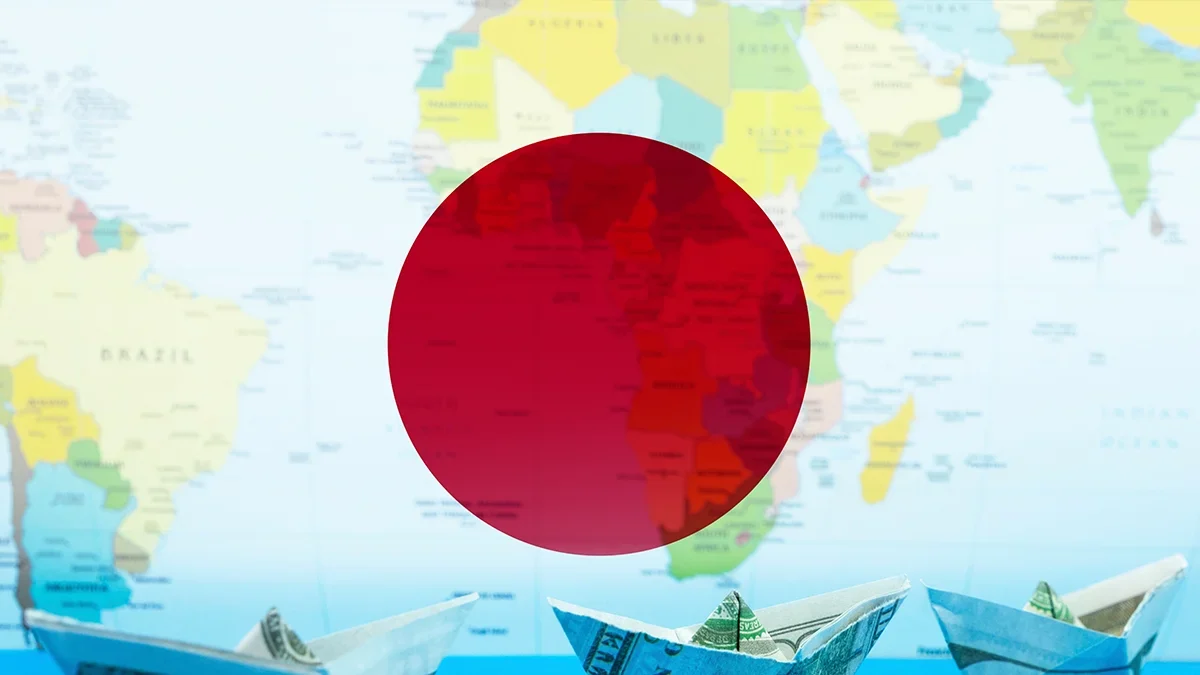(Re)in Summary
• A cross-shareholding selloff is expected to provide cash for Japanese insurers to invest in new business and technologies, panellists say at InsureTech Connect Asia in Singapore.
• The FSA, the regulator, has encouraged domestic and foreign insurtechs to partner with traditional Japanese insurers to help them digitalise.
• Japan’s aging population and economy has created a need for new insurance products, asset management capabilities, and improved efficiency.
• Foreign insurtechs can add value by bringing use cases and experience from outside Japan, panellists say.
A selloff of cross-shareholdings by Japanese insurers is expected to unlock significant funds for investment in new business and technologies, said experts during the first day of the InsureTech Connect Asia (ITC Asia) conference in Singapore on Tuesday.
Cross-shareholdings, through which companies hold stock in one another to cement business relationships rather than for pure investment purposes, are common in Japan. However, after a crackdown on price-fixing practices, the Financial Services Authority (FSA) in February issued business improvement orders to four leading Japanese general insurers, asking them to accelerate sales of their cross-shareholdings.
The divestment of these shares could bring around US$43.5bn in funds that can be used to foster innovation.
“There is a huge selling down in cross-shareholdings, which means there’ll be a huge cash sink in corporate Japan,” said Tomonosuke Katagiri, Sales Director for Japan and Korea for French insurance pricing insurtech AKUR8 (pronounced ‘accurate’) speaking on a panel during the first day of ITC Asia. “What happens is that they’ll be starting to invest in a new business or a new technology that has the efficiencies.”
Tomonosuke Katagiri
Sales Director for Japan and Korea at AKUR8At least 20 global insurtech startups are already doing business in Japan, said Chang Li, Vice-President for Fintech and Insurtechs at innovation accelerator Plug and Play Japan, even as the FSA seeks to level the playing field and set up an environment conducive for fintechs and financial institutions to expand into the country.
Japan, the fourth largest insurance market in the world, has relatively low rates of insurtech investment, Li noted, at only US$100m compared to the US$42bn invested into insurtech around the world in the last decade. This makes the country an attractive market.
“Most of the insurtech startups in Japan are in their very early stage,” Li added. “This actually makes it a very interesting market for global startups to come into Japan.”
Traditional Japanese insurance companies have operated for around 150 years and have been building relationships with their policyholders, said Hideaki Namiki, Deputy Director of the FinTech and Innovation Office, at the FSA.
With Japan’s high insurance penetration rate — higher than other Asian countries — insurtechs looking to enter the Japanese market can offer solutions that make legacy insurers’ business operations more efficient, or solutions that help with making insurers’ products more personalised.
“We encourage traditional, large insurance companies to work with these insurtech startups,” Namiki said. “And not just Japanese domestic insurtech companies, we also are encouraging overseas insurtechs to partner with us.”
With Japanese property and casualty insurers facing a turning point as they suffer continued losses, insurers are seeking other business models, Namiki added. “And one of those is using the technologies insurtechs have to make more distribution channels, like embedded insurance, or to lower the combined ratio so they can be more efficient in business operation,” he said.
Hideaki Namiki
Deputy Director at the FSAThe country is also dominated by an agency distribution model as it lags in digitalisation, with most premiums handled online. Over 90% of premium income still comes from insurance agencies, said Naoyuki Kosaka, CEO and president of Japanese insurtech hokan.
“There are more insurance agencies than traffic lights today,” Kosaka said.
Kosaka believes insurance agencies will remain dominant in the next five to ten years, even an increasing number of people paying premiums through independent agencies. “The proportion of internet-based channels has not increased much since Covid-19,” Kosaka said. Only about 10% of auto insurance — a non-life line considered the most digitalised — is purchased digitally, he added.
Kosaka’s company, Hokan, provides SaaS-enabled customer relationship management software for Japanese insurance agents. “By developing and providing CRM, the core system for insurance distribution, we are offering agents a better experience with their customers,” Kosaka added.
Ageing population, attractive market
Japan’s ageing population and economy bring unique dynamics into its insurance industry, said AKUR8’s Katagiri.
AKUR8, which opened its Tokyo office in 2023, now has a small team of data scientists and salespeople trying to expand the business into the region.
“We are still one of the largest economies in terms of GDP, but if you have to look in detail, there are a couple of dynamics when you think about Japan,” Katagiri said.
For instance, new products might need to be developed to support its ageing population, and asset management capabilities might need to be enhanced to support the financial future of people who are living longer, Katagiri added.
Companies can also seek opportunities outside of this, and work to enhance efficiency using technology to scale businesses while dealing with Japan’s shrinking workforce.
Years of low and even negative interest rates in Japan compared to other markets have also posed challenges from an investment and pricing perspective, Katagiri said. “But Japan has started to ease that policy, which (means) for insurance companies, they have to start changing the price based on inflation.”
Tomonosuke Katagiri
Sales Director for Japan and Korea at AKUR8While pricing is AKUR8’s core value proposition, it remains just part of an organisation or business process.
“We have to be aware that there are many other aspects of the insurance company. So, if we want to deploy something now, we also have to be aware of the ecosystem that we sit in,” Katagiri added.
“Hokan and ourselves, we’re still seeing a lot of good opportunities in insurtech,” said Katagiri. Having the FSA in the room is a good implication, he added. “The FSA is a regulator, but also trying to promote the innovation that’s happening in the insurance market, so I think that’s already a good sign.”
Many Japanese companies are also eager to know what’s happening outside of Japan, he said. “I think the biggest strength of the foreign insurtech is if you have use cases in different countries outside of Japan, that’s where you can add value.”
The FSA have actively supported foreign investment and innovation in the insurance industry, with a dedicated fintech support desk assisting companies with setting up businesses.
“There are a few challenges, like the language or the quality that Japanese clients require,” said the FSA’s Namiki. “People might think Japanese regulations are strict, but we’re trying to support these challenges.”






















